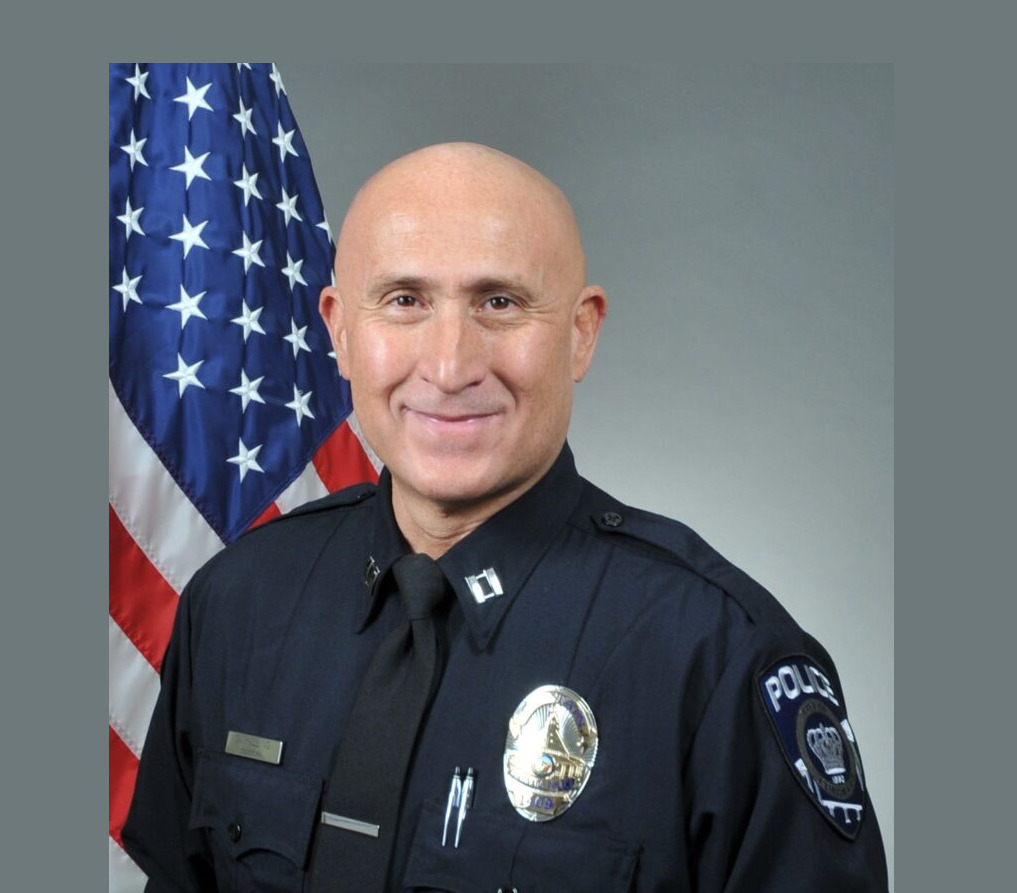Capt. Dustin Kulling of the Coronado Police Department may have discovered his interest in law enforcement by interacting with local cops at his father’s donut shop, but Kulling is anything but a stereotypical cop.
A passionate yogi pursuing a doctorate in strategic media, Kulling works hard to strengthen community relationships and ensure the men and women who serve Coronado are equipped to do so to the best of their abilities.
“One of the most influential teachings I heard as a young man going to police academy was [from] a guy named Robert Peel, who has nine principles of policing,” Kulling said. “One of these principles is the following; the public is the police, and the police are the public. So there really is no separation between the two. There are only a few of us who are the cops who get paid to do it full time, but it’s everyone’s job to think about the safety of the community.
Kulling is a Northern California native, originally from Lodi, and prior to coming to Coronado, he served with the San Joaquin Valley Police Department from 1996 until late 2021. He has experience as a undercover agent in the field of narcotics and as a patrolman.
He said that in high-stress situations like undercover drug deals or taking down meth labs, it was difficult to stay calm and aware of your surroundings at all times. He was skeptical of yoga at first, but once he started paying attention to his breath and his body, Kulling found it was a way to get back on his feet.
Now he no longer comes face to face with cartels, but he does spend a lot of time interacting with the people of Coronado. When it comes to cops and ordinary citizens, he says it’s not an “us versus them” situation. He finds that building connections and communication can be extremely useful when working for a community that can trust its police force, especially in light of recent events that have sparked movements against police forces. order.
“What I love about Coronado is that I was able to walk down the street and have time to sit and talk with people,” Kulling said. “They may get to know me as Dustin, I’m just a guy who likes to surf, who happens to be a cop. I’m not a robot wearing a uniform and a badge, I’m a person too. And when they get to see you as a person, the whole conversation takes on a completely different tone.
Kulling said continuing his education after earning a bachelor’s degree in criminal justice — earning a master’s in higher education and a doctorate in strategic media — has helped him better serve the men and women who work alongside him and his new community.
“We fail to tell our story as law enforcement,” Kulling said. This is one of the things we need to do better. And to do that, we need to understand the needs of the community. We are their department, they don’t belong to us, we belong to them. They hired me to be the captain here, I didn’t hire them to be my community. We serve as they please. And the best way to provide service is to understand what they want.
Kulling teaches de-escalation and wellness classes to members of the police force. It helps officers better understand how to “reduce the situational intensity of an encounter” and how to take care of themselves after a traumatic event in the line of duty.
“When I started in the late 90s, there was a stigma with [asking for help],” he said. “That means I’m weak, right? That’s the perception in the industry, is that you’re weak. And that’s something we try to knock over. It’s not easy to do [but] we are making a lot of progress.
Kulling has just started his work in Coronado, but shared his thoughts and first impressions of the city, calling Coronado “exceptionally patriotic.”
“There’s a sense of belonging in the community that’s truly unprecedented,” he said. In some places, many people call the cops to complain about a situation in the community. “What I’ve seen here are people actually taking action to deal with it. I like this because, as I mentioned earlier, when you talk about the principles of policing, it’s everyone’s job, not just the job of law enforcement to ensure community safety.

